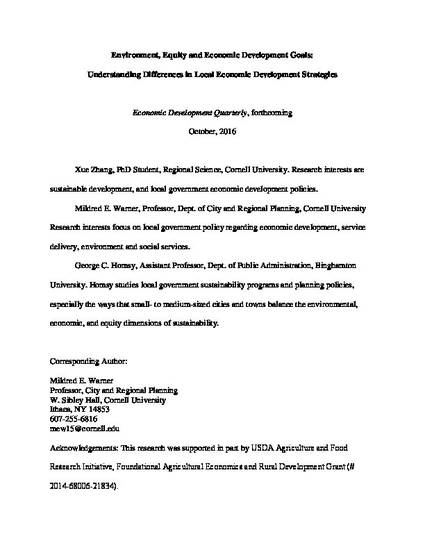
- Business incentives,
- community economic development strategies,
- sustainable development,
- planning
What role do local governments play in promoting sustainable economic development? This article uses a 2014 national survey to analyze the relationship between local environment and social equity motivations and the kinds of economic development strategies local governments pursue (business incentives or community economic development policies). Municipalities that pay more attention to environmental sustainability and social equity use higher levels of community economic development tools and lower levels of business incentives. These places are also more likely to have written economic development plans, and involve more participants in the economic development process. By contrast, communities that employ higher levels of business incentives have lower income and are more dependent on manufacturing development. Other capacity measures do not differentiate types of economic development strategies. This suggests sustainable economic development strategies can be pursued by a broader array of communities, especially if they broaden the motivations driving their economic development policy.
Zhang, X. & Homsy, G. (2016). Environment, Equity and Economic Development Goals: Understanding Differences in Local Economic Development Strategies. Economic Development Quarterly.
Available at: http://works.bepress.com/george-homsy/10/
